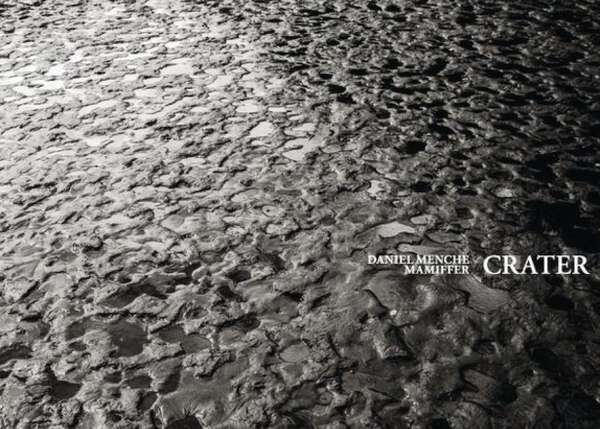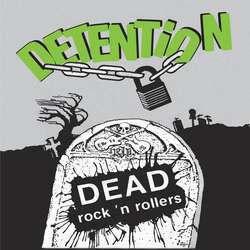In 2014 Mamiffer, the project of Faith Coloccia, released Statu Nascendi, which was described as a transitional album, leading to the next full-length the band would eventually release. Statu Nascendi definitely felt like an album of change, with Coloccia and collaborator Aaron Turner stepping further into the realms of minimalism and drone. It might still be a while until The World Unseen, the upcoming album of Mamiffer, is released, but these guys make sure they keep us fixated. Mamiffer has a history of great collaborations, with bands/artists such as Circle, Locrian and Merzbow, just to name a few. The follow-up in the joint efforts' domain is Crater, the work they produced with noise savant Daniel Menche.
Ritualistic might not be the right word to describe the vision of Menche and Mamiffer, but there is something inherently processional about their work. The first taste of the input that both participants have in the final result is experienced through “Calyx.” The track starts quite nicely with some guitar and piano parts, slowly unfolding the melodic qualities familiar in the works of Mamiffer. However, this harmonious moment is slowly being twisted, as the distortion is applied more and more heavily on the part, resulting in a strange combination of melancholy and wonder. “Calyx” finishes quite nicely with a clean version of itself putting an end to this process. A reversal of this mentality is found in “Maar” with the start taking off in a melodic manner while soon enough the noise input completely crashes the phrase until almost nothing is left.
The build up of the songs is evolving naturally, usually originating from a field recording and then slowly blossoming into something more complex and imposing. The field recordings on their own are able to craft a very delicate ambiance. The footsteps in “Husk” are able to give a sense of mystery to the track, as well as grant more movement to the parts, slowly awakening the track. The fact that the sample in this case has a few different elements going on at the same time, makes it exponentially more interesting. “Exuviae” on the other hand features a more peaceful recording, with a water-related sound giving an almost cathartic element to the scenery, having a soothing effect, while the constant bass drum on the background lets on a vibe of finality. It also works nice in contrast with the more bleak outro sample, as the dark footsteps close the track. Still, one of the more interesting field recording is found in “Alluvial,” appearing to be the sound of someone going through some debris, as if walking through a bunch of small tree branches and crushing them with each step. There is something very precious about the recording in this instance, instantly capturing your attention.
There is another means to the enhancement of ambiance in this work, and that is the percussive elements. Even though these do not appear throughout the album, the sparse implementations of such moments aid the ambiance in becoming more complete. Parts of “Alluvial” see cymbals increasingly filling the soundscapes, giving a further rise to the mystical essence of the track. The percussion in “Breccia” sees similar cymbal-like sounds granting more movement and acting as slight drops of light within the darkness of this work. The absence of percussion in general is able to take away the sense of time from the music, as if one of its dimension has become obsolete. “Exuviae” for instance feels eternal in the manner of its progression, but once the minimalistic percussion is brought in, the sense of time is established, confining the drones within a certain time scale.
Through the ambiance the core aspect of this work blooms, and that is the drones. The tracks here have a great sense of continuity, both individually and as a whole. The distant drones that appear through the field recording in “Husk” appear as sirens echoing through the abyss. The feedback is immense, resulting in soundscapes spawning from its presence. And it is not a one-dimensional approach as well. The distant, delicate start of “Husk” soon gives way to parts filled with pressure, as if an infinitely long string is being pulled to its breaking point but without ever actually breaking. The minimalistic mentality is apparent in the end of the track, as the amps are outputting a darker, bleak ocean of feedback. That aspect is further explored in “Alluvial” with the drones not encompassing as much space and bringing a more mystical quality to the sound. The vision is still expansive, something that becomes apparent when more adventurous movements are made resulting in an imposing manifestation, with a more messy and open approach.
The key aspect is how these guys are able to add colour to their drones, and that is mainly done by the addition of noise. The noise-infused parts of “Exuviae” see a splattering of colour being applied, as the track passes from the piercing tones to more monotonous parts. The way the track progresses feels so natural and appears with such a sense of ease, switching from one form to another.
The true peak of the album however has to be “Breccia,” which apart from including the most intriguing field recording of the album, passes through so many different modes. The abrupt start of the track sees the two artists moving within the abusive noise territory, as everything around is falling apart and the circular sounds are grinding your eardrums. It even feels that at some point the field recording merges with the underlying drone, to the point where you cannot say which one is which. The rise of the drones brings a devastating outcome, with their ever-evolving progression seeing the construction of soundscapes over soundscapes over soundscapes. The track is an opus, filled with a claustrophobic quality and stoic perspective, twisting and turning through the motions, while always retaining its esoteric essence.
Crater is a case of a multidimensional offering. The tracks progress and evolve, attaining different characteristics as time passes. The mysterious tones of “Aluvial,” the hypnotic sound of “Husk,” the pitch black darkness of “Breccia,” the peaceful moments of “Exuviae” and the melodic interludes of “Calyx” and “Maar” are just some of the elements that Daniel Menche & Mamiffer awaken through the seventy minutes of Crater.




